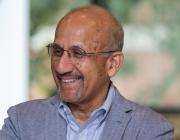WWS 561/POL 523 Comparative Political Economy of Development
This course will provide a graduate level introduction to the comparative study of development. The course is organized around the issue of why some parts of the developing world have done better at “development” than other parts. Whereas Asia is often viewed as developing rapidly, sub-Saharan Africa has just as often been treated as a failure. Latin America is commonly perceived as a mixed case, with pockets of both success and failure. While defining what success or failure may mean, and qualifying these assessments as necessary, our collective focus will be on how best to understand such variations. The main contending explanations of developmental success and failure that we will examine generally point to the varying impact of national states, markets and globalization.
The course is divided into three parts. After a brief overview that will emphasize the interaction of states, markets and globalization as our conceptual framework, we will examine a variety of development pathways. The readings will introduce you to the experience of main regions of the developing world. I will often draw my examples from Brazil, China, India, Korea and Nigeria. The cross-regional focus will also enable us to discuss some standard issues that ought to be covered in such a course: state-led growth, growth versus distribution, managing external dependencies, structural adjustment, role of institutions, and democracy versus authoritarianism. We will finally end the course by focusing on emerging issues that cut across the regions and that are likely to be significant enough to merit our special attention. I have picked four such issues for discussion: Globalization, Democracy, Ethnic Conflict, and Distribution and Poverty.

